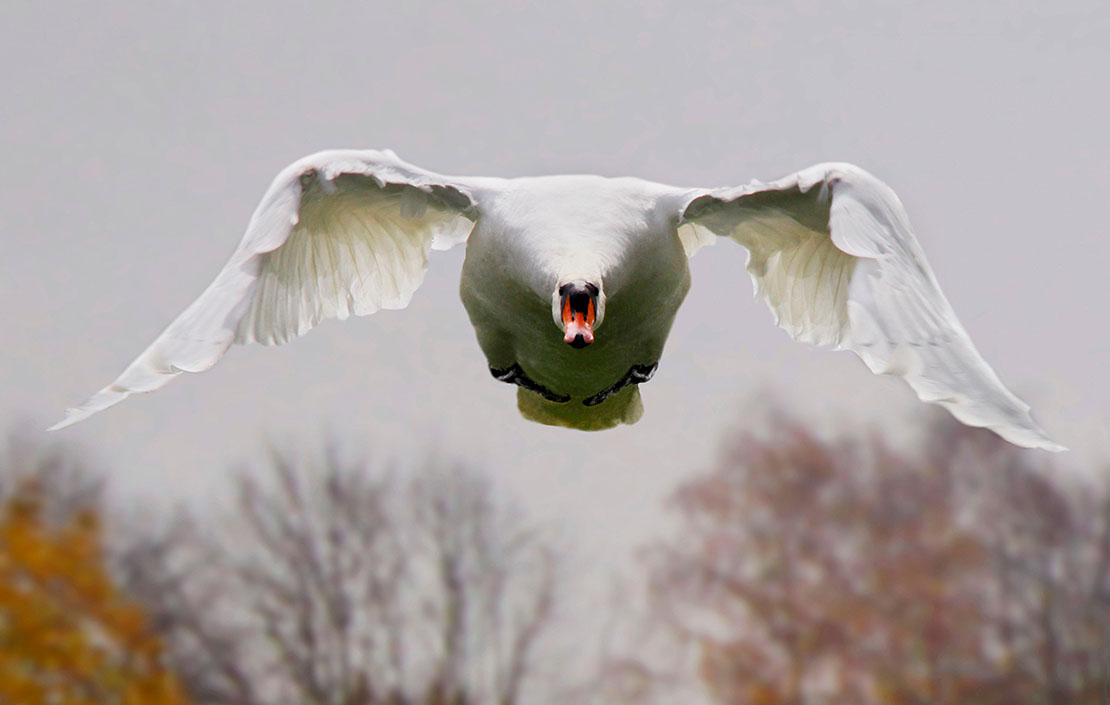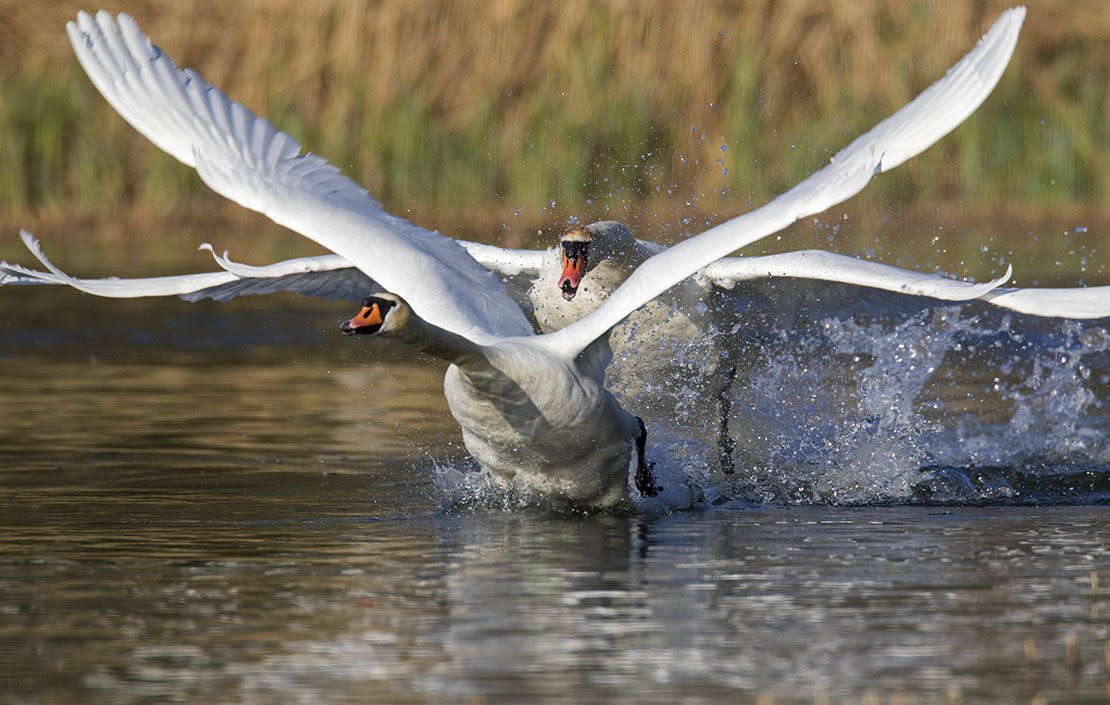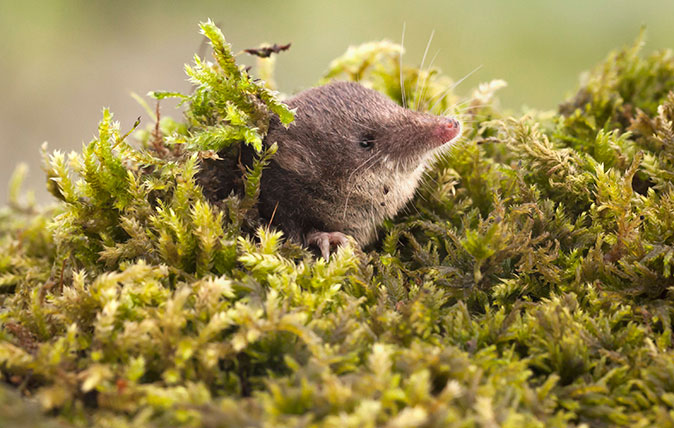Curious Questions: Can a swan really break your arm?
We’ve all heard the famous old wives' tale – but is there any truth to it, or is it merely a ploy to keep small fingers away from snapping beaks? Alexandra Fraser finds out.


‘Of course they can’t. Don’t be silly.’ That's the response most of us give whenever we hear the unnerving warning that's always – always – dished out by someone whenever we come within a few yards of a swan.
But try as you might, brushing the glib advice off as rubbish is rather difficult – not least because the warning is so ubiquitous.
Then there's the sheer size of swans: they have wingspans of up to 2.4m – that's roughly 8ft in old money – and weigh 13kg (that's 28lb, or two stone if you prefer). Thus, even the most logical mind can be plagued by the question: ‘Can a swan break a human’s arm?’

The good news is that you can rest easy. Birds that still retain the power of flight are essentially built for lightness rather than solidity, and while a swan can whip up fantastic wing tip speed its bones are too light for there to be any serious heft behind their blows.
'It's a myth that they will break your leg or arm with their wings,' John Huston of the Abbotsbury Swannery in Dorset told the BBC a few years ago. 'They are not that strong and it's mostly show and bluster.'
What's more, swans are very rarely aggressive: there are over 1,000 swans at Abbotsbury, but they've yet to record an attack on a human since the colony was founded some 600 years ago.
That said, swans can be dangerous if you're out on the river: the males in particular can be aggressive when defending their nests, and that can be scary. Swans are one of the heaviest flying birds in the UK, a fact that becomes clear when one is hurtling towards your rowing boat at top speed in the middle of mating season. Indeed, in one tragic case in the USA a few years back, a man drowned when his kayak capsized as a swan attacked.
Exquisite houses, the beauty of Nature, and how to get the most from your life, straight to your inbox.
If you're walking along the riverbank though, there's not too much to fear. There’s no doubt that they're intimidating and an attack could certainly lead to some very real injuries, but a broken arm is not likely to be among them. On the off chance that a swan did manage to hit you hard enough to splinter a bone, the injured party would be the furious fowl.
The aggressive display made by a swan when it feels threatened is known as ‘busking’ but don’t be fooled by the pleasant term – this is no warbling swan song, but a cacophony of hissing and other intimidating sounds.
General advice given by British Bird Lovers is to not approach a swan or a nesting area in the springtime (although why you’d want to approach a giant bird with a sharp beak at any time of the year is, quite frankly, beyond me). Nesting season is April to June, and swans setting up home for the season can be particularly aggressive.

The added danger is that most swans are paired and will defend their nest as a couple. Swans do mate for life but there are rare cases of ‘divorce’ – often after a poor breeding season. The only swan to be regularly unfaithful, apparently, is the female Australian black swan.
In short, a swan won't break your arm as you amble along beside the river to your local pub on a Friday evening. However, in the name of good sense and to avoid a few nasty bruises, don’t try to pet the pretty bird – especially during the lusty month of May.

Curious Questions: Do love potions actually work?
The idea of a potion that can make someone fall in love is as old as the idea of love

Credit: Alamy
Curious Questions: Are bees really busy?
We've all used the phrase 'busy as a bee' – but is it justified? Or are bees just as liable

Credit: Alamy
Curious Questions: How did shrews get such a bad name?
The shrew is a tiny and seemingly-inoffensive creature of the meadow. So how did it end up becoming a byword

Curious Questions: What is the perfect hangover cure?
If there's a definite answer, it's time we knew. Martin Fone, author of 'Fifty Curious Questions', investigates.

Credit: Alamy Stock Photo
Curious questions: Do dogs like listening to music?
As a nation of dog lovers, we’ve already seen home-cooking for canines, ‘pup cakes’ and Pawsecco. Now, we’re composing music

Curious Questions: Why do actors say ‘break a leg’?
The best-known phrase for wishing an actor luck is also the most baffling. Martin Fone, author of 'Fifty Curious Questions',

Credit: Alamy
Curious questions: Are you really never more than six feet away from a rat?
It's an oft-repeated truisim about rats, but is there any truth in it? Martin Fone, author of 'Fifty Curious Questions',
